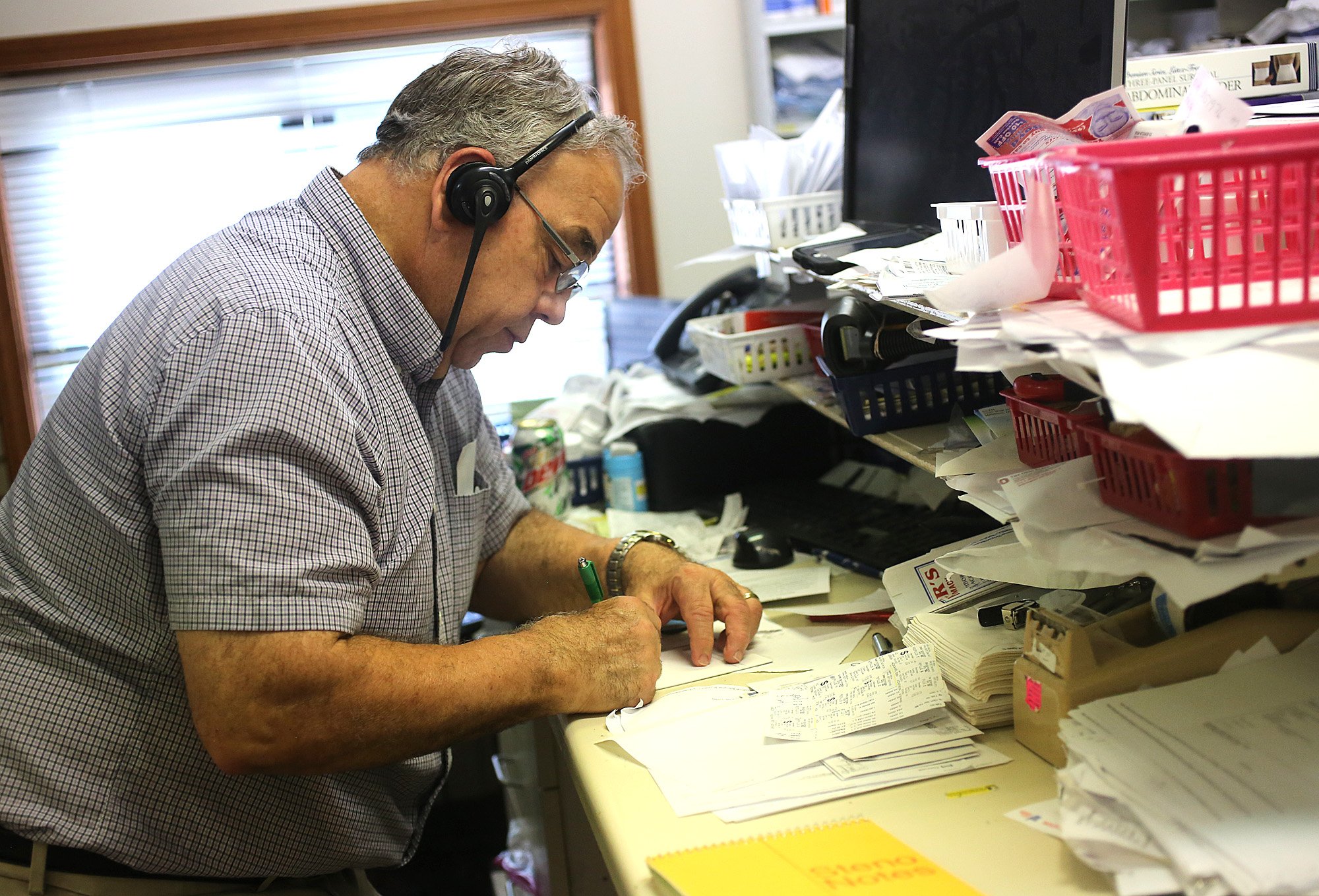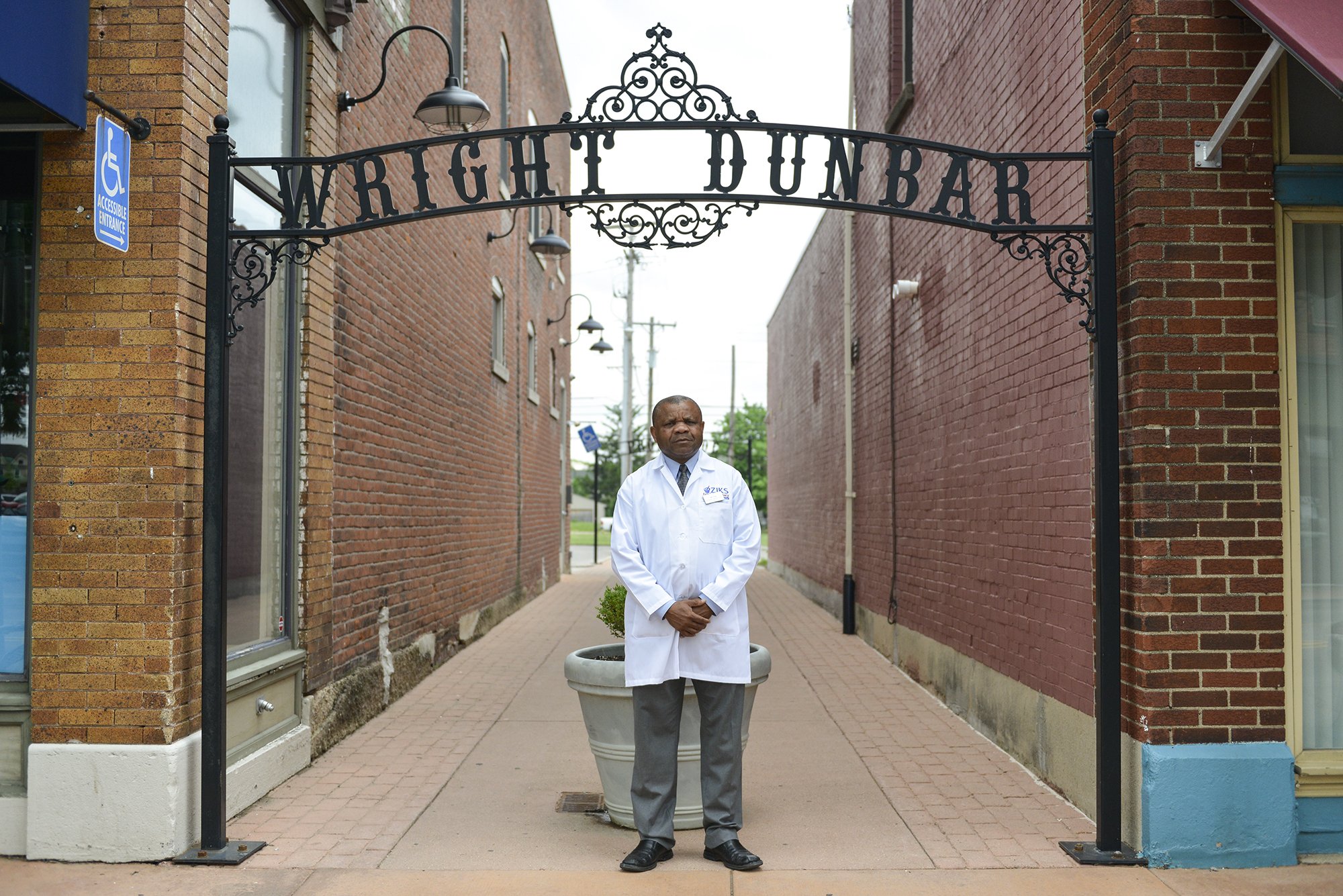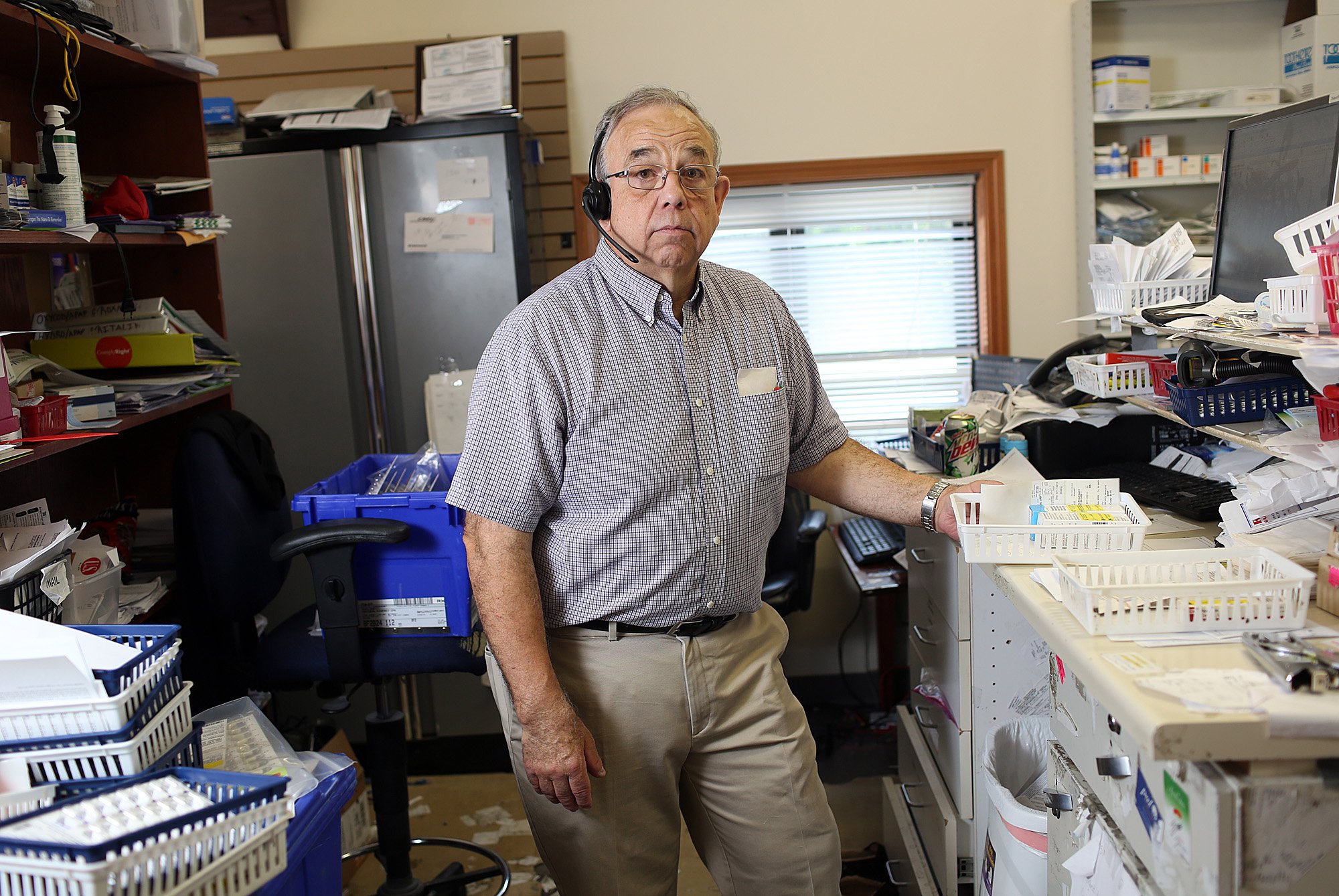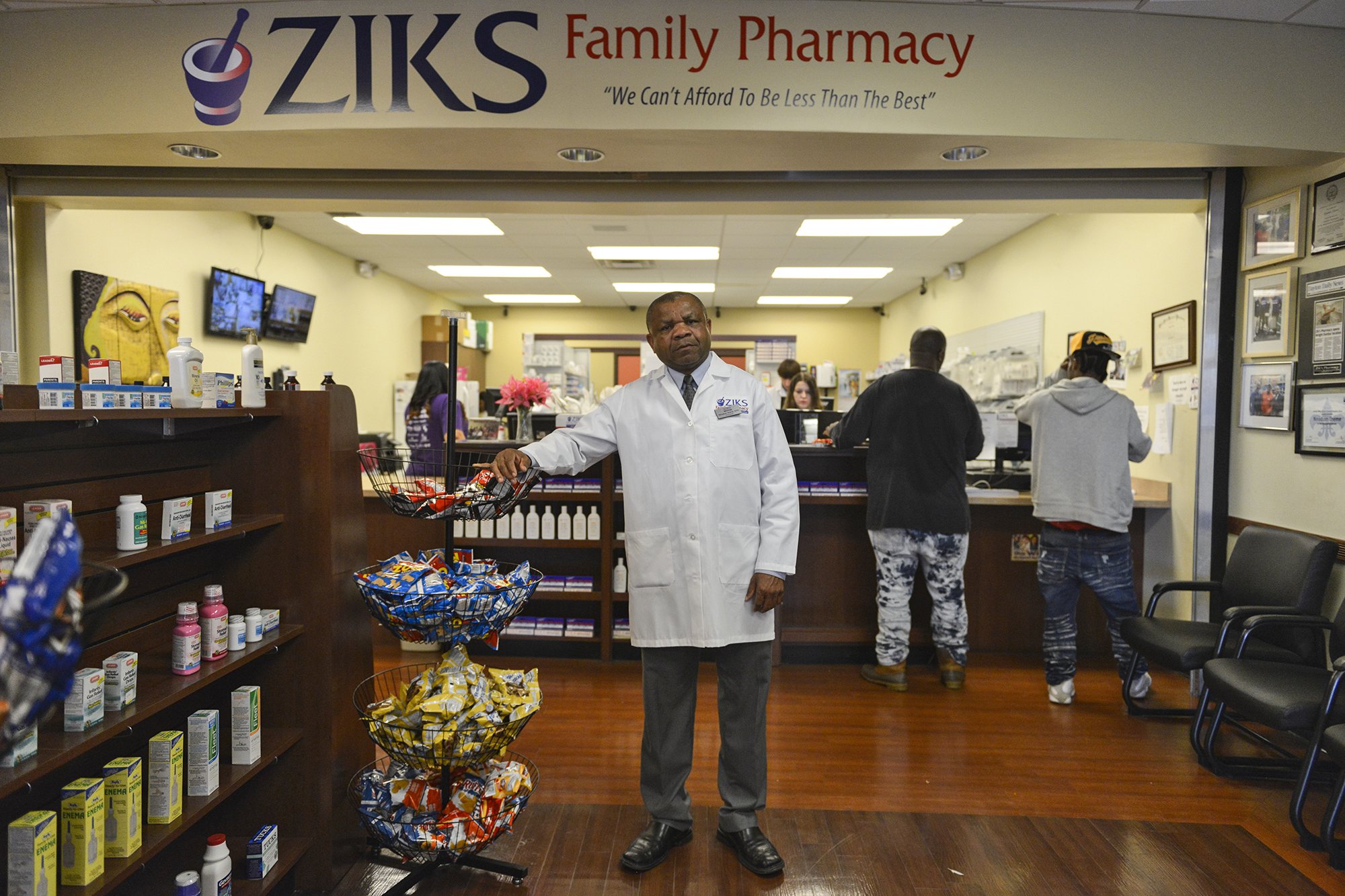Local pharmacies and their personal care in danger of disappearing
Mark Kratzer's pharmacy business seems to be as much a calling as a profession.
“I’ve always told people I’ll probably die at the counter, but I don’t know if I’ll have a counter to die at,” he said at his Wilmington store, Kratzer's Hometown Pharmacy.
He's far from alone. As with other health professions, part of the attraction of pharmacy is the chance to help others, but many independent and small-chain pharmacists say that's increasingly difficult to do.
From emphasizing mental health care to giving flu shots in the parking lot to investing in distressed communities, community pharmacists in Ohio say their independence has given them freedom to address their communities' special needs. However, they say, market forces — including some imposed by the state — are making it harder to stay in business.
Part of their trouble is the same as that of any mom-and-pop business struggling to compete with the big boxes along the highway. But Ohio's community pharmacists say that pharmacy benefit managers — middlemen who determine their reimbursements from insurance companies and government programs such as Medicare and Medicaid — are stacking the deck against them.
“Reimbursements are at or below costs. It’s unsustainable,” Kratzer said.

A Dispatch investigation into the pharmacy-benefit management business has shown that at the same time pharmacy-benefit manager CVS Caremark cut some Medicaid reimbursements last year, it sent letters to CVS's community retail competitors offering to buy them.
Following a Dispatch analysis showing CVS Caremark was billing Ohio's Medicaid managed-care plans substantially more for medicine than it was reimbursing pharmacies, the state conducted an analysis and determined CVS and pharmacy benefit manager OptumRx were billing taxpayers $224 million a year more than they were paying out. CVS has added 68 pharmacies in Ohio in the past three years. Meanwhile, the number of other pharmacies — including other large chains — have stayed flat or declined.
But the issue extends beyond CVS, said Antonio Ciaccia, lobbyist for the Ohio Pharmacists Association, which represents community pharmacies.
>>We'll be hosting a Reddit AMA on Tuesday, July 17, at 11 a.m. ET with reporters Marty Schladen and Cathy Candisky about pharmacy benefit managers and why they're suddenly a hot topic in the news and in legislatures. Find it here
"It's not just a CVS issue; it's a PBM industry issue," he said. "It's just one problem in a big basket of problems."
CVS health spokesman Michael DeAngelis disputed that assertion, pointing out that the same report that said CVS and OptumRX were paying themselves much more than they were paying pharmacists also said that CVS Caremark reimbursed independent pharmacists at higher rates than it did CVS pharmacies.
Community pharmacists say that if they go away, their neighborhoods and the U.S. health system will lose something vital. Take Kratzer, for example.
The lifelong Clinton County resident came to pharmacy as a second career after being injured as an iron worker. Now, he focuses on customer service, like going out to the parking lot to give flu shots to customers who have difficulty getting out of the car or making deliveries to the home-bound. He also sorts medicines into daily compliance packs for the elderly and others who have trouble remembering what they take. When he notices a day was missed or a pill not taken, he calls his customer’s doctor.
“A lot of people we’re doing it for, I went to school with one of their kids or I’ve known them all my life," said the 62-year-old Kratzer. "You’re just trying to help a friend stay in their house longer."
Kratzer said times are tough for independent pharmacists. He’s not sure how long he can hold on. He stopped taking a paycheck last year and recently let go his only other pharmacist. His income now primarily comes from real estate investments. He blames pharmacy middlemen for cutting reimbursement rates to pharmacists to fill prescriptions and implementing policies that force their customers to get their medicines elsewhere.
OptumRx billed Medicaid $26 million more in the 12 months ending March 31 than it paid pharmacists. It also charged processing fees that were more than triple what a consultant said they should be. The company said, however, taxpayers are getting a fair deal.
“We put Ohio’s Medicaid beneficiaries and taxpayers first by providing people with access to the prescription drugs they need at the lowest possible cost, which then primarily drives how much pharmacists are paid," spokesman Andrew Krejci said in a statement.
Nnodum Iheme says it's not enough. The Nigerian-born pharmacist invested in a struggling-but-historic Dayton neighborhood when no one else would.
“Ten years ago, it was like a desert. There was no activity until we opened up,” Iheme said.
So he bought a crumbling 121-year-old building in the neighborhood where the Wright brothers and poet Paul Laurence Dunbar grew up, restored the interior and turned it into Ziks, a thriving business.

Referring to Iheme's pharmacy, Dayton Mayor Nan Whaley said, "Ziks has been an anchor in Wright-Dunbar. When he came in, nobody was really in Wright-Dunbar."
Iheme also offers compliance packaging and delivery, and he strives to offer a friendly, familiar face to his customers, often interrupting himself to greet them when they walk in.
“Everyone who comes here has a name — not just a number. You build a relationship,” he says and then rushes off to greet someone else.
Robert Minor and Dallas Shackleford Jr., both 81, grew up together in the neighborhood and on Tuesday, they bumped into each other at Ziks. Both said the pharmacy was spurring big improvements in the neighborhood.
“This was a rough area at one time, but he’s bringing it around,” said Shackleford, a former Mr. Ohio bodybuilder.
And Cleora Smith, 73, said she particularly valued being able to patronize a black-owned business.
“It’s just nice to have a pharmacy in the neighborhood where they know you, you know them,” she said. “Especially our people, we can support our businesses. That’s very, very important.”
Iheme said that his home-health business and his sales of medical supplies and devices make the operation viable. He advises younger colleagues that this is not a good time to open an independent pharmacy. Reimbursements from pharmacy-benefit managers are just too low, he says.
Cuyahoga Falls pharmacist Barry Klein also saw a chance to address a community need with his pharmacy.
In the early 1990s, the manufacturer of a new anti-schizophrenic drug, Clozaril, was having a tough time getting chains to carry the drug, partly because patients needed to have bloodwork done every week to monitor its levels in their systems. The company asked Klein to take on the drug and the patients. He said he did so happily.
"I enjoyed the health care aspect of it because it solved problems," Klein said, adding that he became especially motivated when he learned that a person with severe mental illness has a life expectancy that is 25 years shorter than average.
Now, as much as 40 percent of the patients of Klein Pharmacy have a mental illness and his pharmacy also offers services at a clinic operated by Community Support Services of Summit County.
But Klein said that low Medicaid reimbursements and high fees associated with Medicare are making life difficult.
"One thing comes at you from one direction and another thing from another direction," he said.
DeAngelis of CVS said that his company wants to support community pharmacies.
"We've always believed they play a very important part in delivering pharmacy care," he said.
He also said that CVS pharmacies provide many of the same services of which community pharmacies boast about, including multiple-dose packaging and next-day delivery through the mail.
But pharmacist Nate Hux, 44, says it's not the same. He left his job working for a large pharmacy corporation about two years ago and decided to purchase Pickerington Pharmacy, a mile from his home.
"I had to become an independent pharmacist for my own sanity," he said. "I wanted to focus on the patients by interacting with them and talking about their needs."

Do you have a news tip?
If you are interested in sending The Columbus Dispatch investigative team working on the Side Effects series an anonymous tip or documentation, you can do so here: Submit a news tip